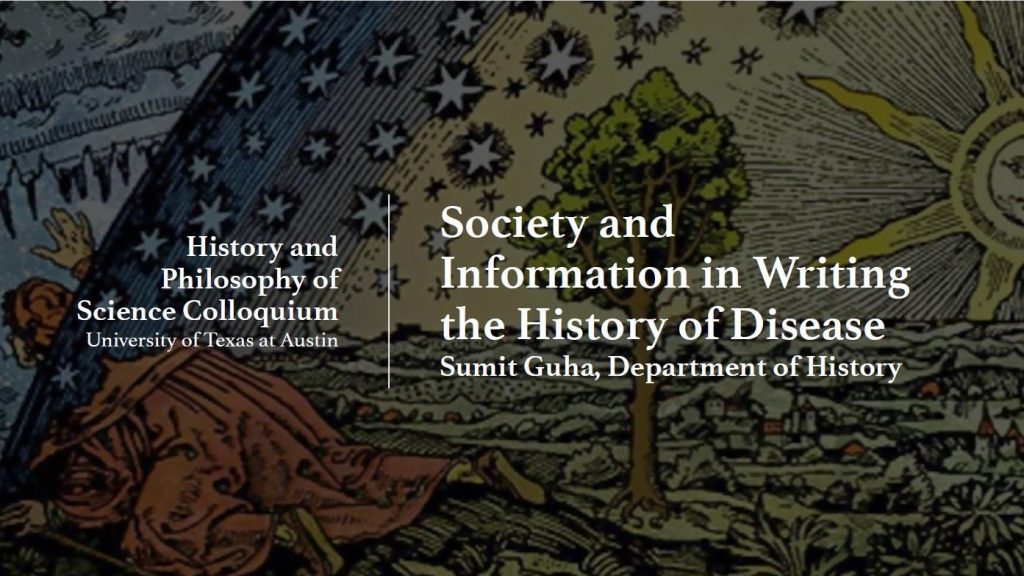
Professor Guha’s interest in disease history originated in his study of demography. He has published on disease mortality in Victorian England in “The Importance of Social Intervention in England’s Mortality Decline,” Social History of Medicine 7,1 (1994), 89-113. His earlier work on South Asia is compiled in Health and Population in South Asia (2001/2009).
This talk, “Society and Information in Writing the History of Disease,” draws on “India in the Pandemic Age,” recently published in Indian Economic Review (https://doi.org/10.1007/s41775-020-00088-0). The latter originated in a request from the Review to write a historical essay that would preface a more contemporary special issue of the journal. It was also written in a couple of weeks, when libraries were closed.
Addressing an audience of economists, the article tried to tease out the historical processes that produce the data series utilized by medicine and the sciences. Professor Guha will address some of these larger epistemological problems in his talk.
_______________
Sumit Guha holds the Frances Higginbotham Nalle Professorship in the UT History Department. He is the author of The Agrarian Economy of the Bombay Deccan 1818-1941 (1985), Environment and Ethnicity in India, c. 1200-1991 (1999), Health and Population in South Asia from earliest times to the present (2001), and Beyond Caste: Identity and Power in South Asia, Past and Present (2013). His most recent book, History and Collective Memory in South Asia,1200–2000, was published by University of Washington Press in 2019.
Other writings by Sumit Guha on Not Even Past
History Between Memory and Reconstruction
Did the British Empire depend on separating Parents and Children?
The views and opinions expressed in this article or video are those of the individual author(s) or presenter(s) and do not necessarily reflect the policy or views of the editors at Not Even Past, the UT Department of History, the University of Texas at Austin, or the UT System Board of Regents. Not Even Past is an online public history magazine rather than a peer-reviewed academic journal. While we make efforts to ensure that factual information in articles was obtained from reliable sources, Not Even Past is not responsible for any errors or omissions.



